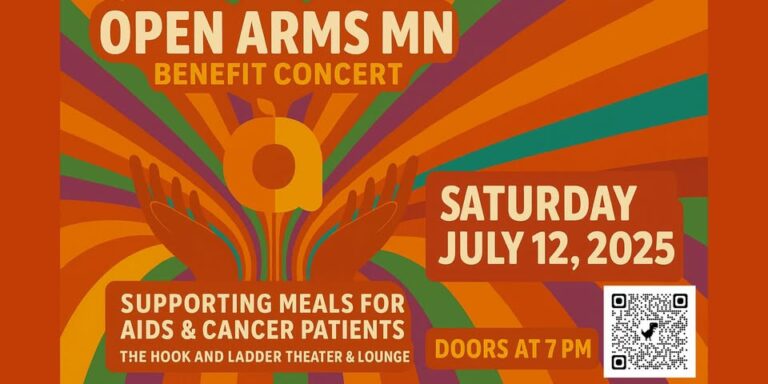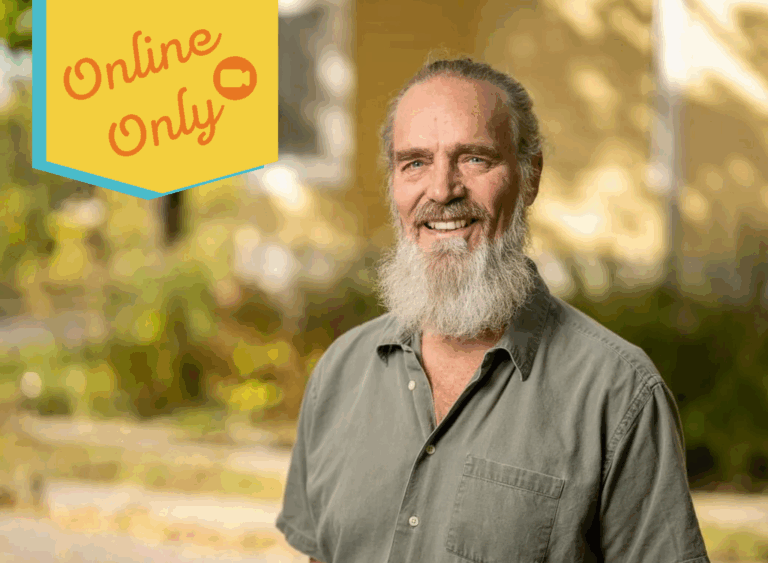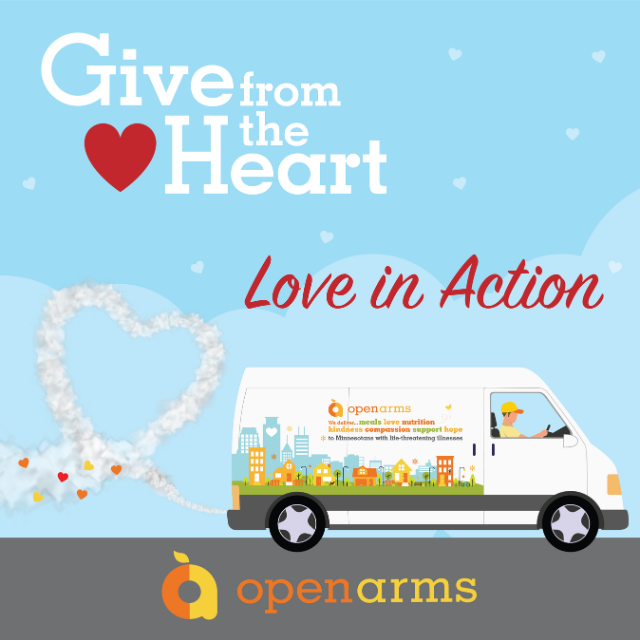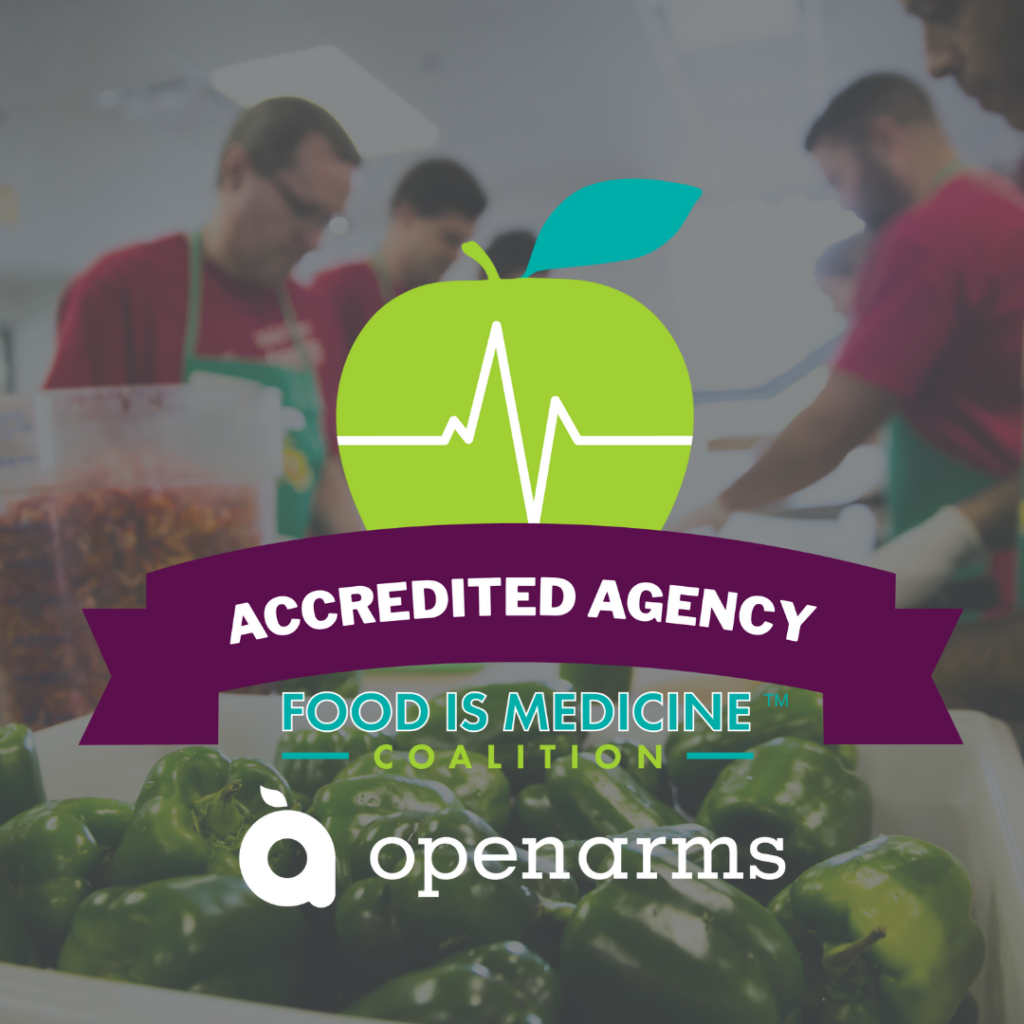To celebrate American Heart Month, our registered dietitian Jake Christensen shares how Open Arms improves heart health for our clients. He also includes additional tips to ensure your heart is happy!
February is recognized as American Heart Month, which is a campaign with an effort to increase awareness of heart disease. Heart disease is the leading cause of death for people in the US and is responsible for 1 out of 4 deaths in the country. One of the primary illnesses that we serve at Open Arms is congestive heart failure (CHF), and many of our clients have a secondary diagnosis of heart disease. While some risk factors for heart disease are inevitable, such as genetics and age, there are several lifestyle changes that can be made to lower risk of the condition.
One step Open Arms takes to ensure we meet heart health goals for our clients is limiting the amount of sodium in our meals. Our amazing chefs flavor foods without adding a lot of salt, which is important for heart health! Instead of adding extra salt to the meals, our chefs add flavorful sodium-free ingredients like garlic, ginger, cumin, rosemary and onion. We aim to keep meals around 500-800 mg of sodium or less, and we are always thinking of new ways to lower the sodium content.
The 2020-2025 dietary guidelines suggest that the general population consume less than 2,300 mg of sodium per day. For a better idea of how much 2,300 mg of sodium is, imagine grabbing a salt shaker from your cupboard and taking a dry pinch of salt from the salt shaker. This is equivalent to around 2,300 mg of sodium. Some people are recommended an even lower daily sodium intake depending on their health condition. The average intake of sodium in the US is around 4,000 mg/day. The major sodium sources for Americans are found in processed and packaged foods that have salt added to them, like pre-made hot and cold sandwiches, canned soups, and “TV dinners.” Eating too much salt may lead to high blood pressure, a major risk factor for heart disease. For this reason, everyone should pay attention to their sodium intake regardless of health status. Looking at nutrition facts labels is one of the best ways to stay on top of your sodium intake. For a food to be considered “low sodium,” it must contain 140 mg of sodium or less per serving.
All of our menu selections at Open Arms are planned to be low in sodium. We have a heart healthy menu that is specifically designed for those with heart disease and/or heart health risk factors. Not only is this menu low in sodium, it’s also low in saturated fat, and high in fiber and other nutrients that are protective for heart health. The heart healthy menu includes a variety of different foods, including “meat and potatoes”-style dishes that are planned to be both nutritious and delicious.
Here are other tips that we often suggest to our clients to improve heart health:
• Up Your Fruit & Veggie Intake: Fruits and veggies are high in vitamins, minerals, fiber and antioxidants, which play an important role in reducing inflammation and lowering heart disease risk. All of our meals provide at least one serving of veggies, and we also send fresh fruits and salads to boost our clients’ produce intake. Outside of OAM meals, clients can enjoy fruits and veggies that are frozen, canned or fresh. All of these provide great nutrition!
• Stay Active: It is generally recommended to get at least 150 minutes of moderate physical activity each week. This is equal to 30 minutes a day, 5 days a week. Even an activity as basic as walking can be beneficial for heart health.
• See Your Doctor Regularly: Your doctor can check your blood pressure and lipid levels to make sure your heart health is in good standing. If it’s not, they can assist you with managing the conditions to prevent them from progressing to heart disease.
• Eat Those Omega-3s: Omega-3s are healthy fats that are not produced by our bodies, so we need to get them from food. These fats are known to provide many health benefits and may support heart health by lowering inflammation, helping to increase good cholesterol levels and more. Eating two servings of fatty fish (tuna, salmon, sardines) a week is a great way to get omega-3s in your diet. If you don’t eat fish, options like flaxseed, eggs, hemp seeds and leafy vegetables are sources of omega-3 fats as well. Consuming omega-3s on a weekly basis can reduce your risk of and the progression of heart disease. Supplements for omega-3s may be indicated for those who aren’t able to get enough from their diet. If you’re interested in taking a supplement, talk to your doctor or registered dietitian for the best option.
• If you smoke, attempt to quit: Smoking is a leading cause of heart disease in the US. Quitting cold turkey is not easy. Try and slowly wean off cigarette smoking with other alternatives like gum or mints. If you need help quitting, talk to your doctor for resources that they can connect you with for support.
If you have questions, contact Jake at 612-540-7760 or [email protected].








